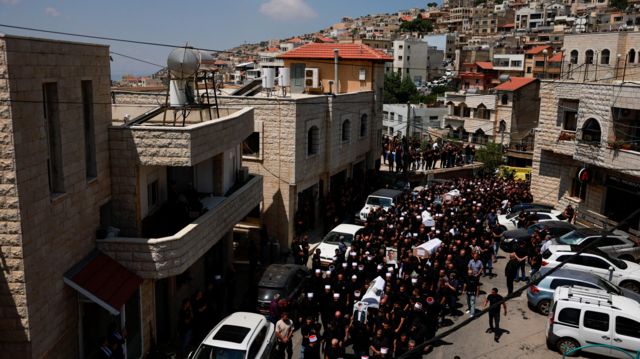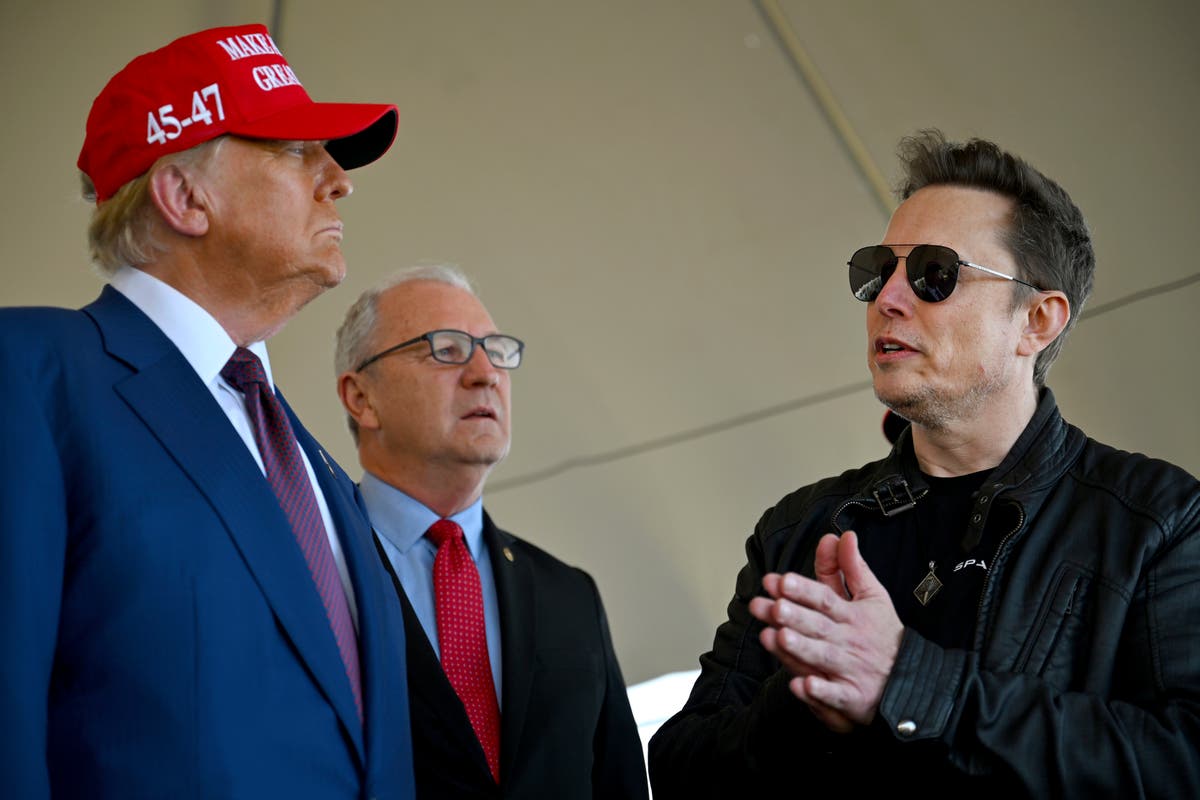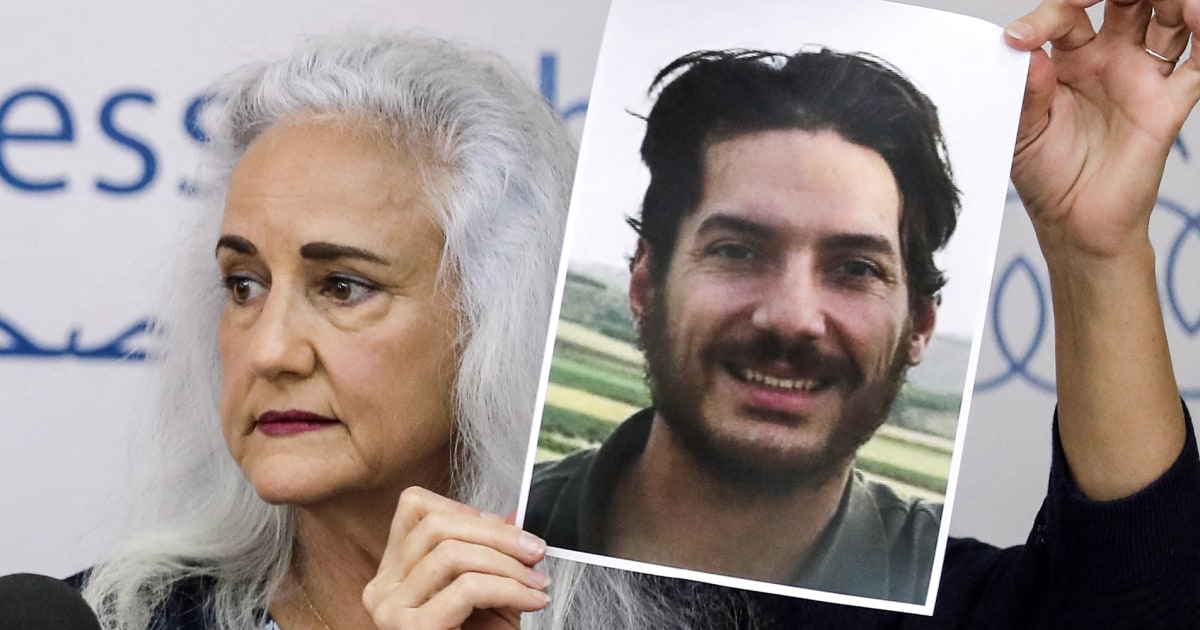World
Golan Heights latest: Fears of Israel-Hezbollah war grow as world leaders urge restraint

‘The children here don’t need more war’published at 17:16
Paul Adams
Reporting from the Golan Heights
Walking around the steep streets of this mountain community,
the sense of collective shock and mourning is overwhelming.
Small groups of men, women and children, all dressed in
black, are moving around silently, from one grieving household to another.
Sometimes you catch sight of people hugging or wiping away
each other’s tears.
Wahim, a teacher who knew many of the young victims, was
utterly distraught, unsure whether to try and express his feelings or stay
silent.
“This is a disaster. How do I even start,” he said, before
apologising and dissolving into sobs.
Ivan Ebrahim pulled up a picture of his 10-year-old cousin,
Milar Shaar, the youngest victim. A boy who loved football and gaming.
“He is the greatest kid here. Everybody loved him,” Ivan
said.
“I don’t know. It’s hard to describe.”
 Image source, Reuters
Image source, ReutersMourners carry coffins during the funeral of children in Majdal Shams
“We haven’t slept since yesterday,” Milar’s uncle, Nassar Ebrahim tells me. “The whole town is in mourning.”
The people of Majdal Shams are used to the sound of rockets overhead, but yesterday’s strike took them all by surprise.
“I don’t think the government needs to respond,” Nassar says. “They need to end the war, so no-one dies on either side.”
The mood up here, away from the occasional angry outbursts down at the football pitch, is extremely subdued.
But this is a part of the world where hospitality runs deep.
A group of young men call us over, offering water thimbles of strong coffee.
They’re determined to stay put, despite the danger.
“We Druze don’t leave our homes,” one tells me, echoing a quiet defiance we encounter elsewhere.
When it comes to what happens next, they’re unanimous: they don’t want a wider war.
“The children here, the children in Lebanon, the children in Gaza. They don’t need more war,” another says.










